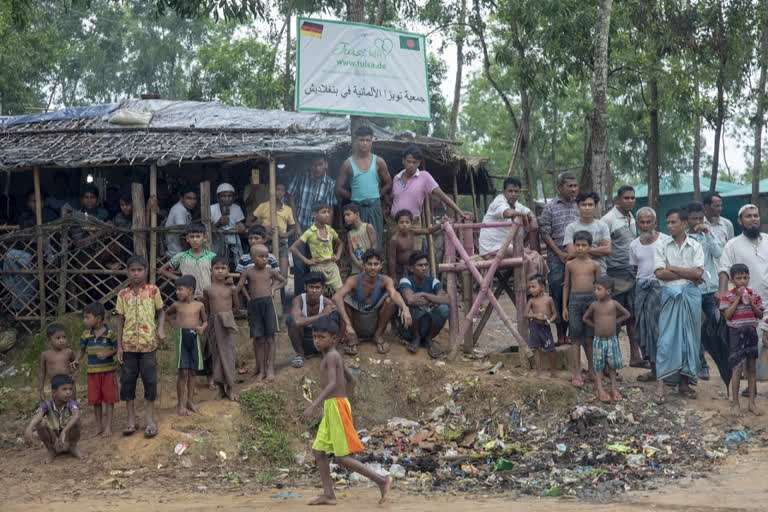Dhaka: Bangladesh won't accept any more members of the Rohingya Muslim minority, foreign minister AK Abdul Momen said, amid reports that hundreds of refugees were stranded at sea trying to enter the country.
"We have decided we won't allow any new Rohingya. This is for the normal time in addition to the COVID-19 situation. We don't want to accept any people in areas that we want to keep protected," Momen said.
It was reported on Wednesday that two fishing trawlers carrying an estimated 500 Rohingya women, men, and children were in the Bay of Bengal after Malaysian authorities pushed them away.
The two trawlers are headed towards Bangladesh a week after an earlier vessel carrying nearly 400 Rohingya refugees arrived there on April 15.
Momen admitted that they had reports about the two boats but said the government's priority was the top protect the refugee camp area where tens of thousands Rohingyas are currently living.
"It's a crowded area. If one infected person comes somehow he will spoil everything," he said.
Momen said ongoing unrest in Myanmar's Rakhine state between the Arakan Army and Myanmar Army is another reason for Bangladesh to turn back the Rohingya.
"Seemingly a war is going on between Rakhine Army and the Myanmar Army. It a battle zone... Moreover, they (Myanmar) released 800 Rohingyas before the election. They were sent back to Rakhine, so we don't know who is coming," he said.
Read more:Over 1 lakh people attend funeral in Bangladesh, defy lockdown
The Minister also criticized the European Union and the British government for supporting Myanmar and urged the global leadership and the UN to take the responsibilities of the Rohingya.
"Global leadership, the UN should take care of them. Let them take these Rohingya. How many (more) we would accept? Many leaders say many things. They have no shortage of land. Let them accept the Rohingya. Everyone is being pushed towards us."
The UN Refugee Agency (UNHCR) has also expressed its concern over the Rohingya stranded at the sea and urged greater coordination and responsibility-sharing between states to address the maritime movements of refugees and asylum-seekers in the Bay of Bengal and Andaman Sea.
"We are increasingly concerned about reports of failure to disembark vessels in distress and of the grave immediate risk, this poses to the men, women, and children on board," Indrika Ratwatte, UNHCR Director of the Regional Bureau for Asia and the Pacific, said in a statement.
